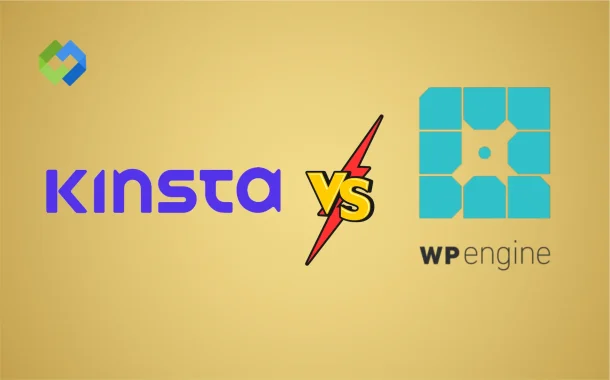Picking the right hosting provider is important for your website’s success. Good hosting ensures your site runs fast and stays online. It also protects your site from security threats. A reliable provider can save you time by handling technical issues.
Table of Contents
Table of Contents
Performance Comparison
When comparing Kinsta and WP Engine, performance is a crucial factor. Kinsta is built on the Google Cloud Platform, providing a powerful and fast network. This infrastructure enables Kinsta to deliver excellent speed and uptime for websites. They utilize advanced caching technology and a content delivery network (CDN) to ensure quick loading times.
WP Engine also offers strong performance, relying on its own infrastructure. It has a solid reputation for speed and reliability, with features like local caching and a built-in CDN. These features help optimize loading times and improve the overall user experience.
In real-world tests, some users have reported that Kinsta tends to have slightly better loading times compared to WP Engine. This could be an important consideration for businesses that prioritize speed.
Pricing Plans
Kinsta and WP Engine offer different pricing plans to cater to various needs. Kinsta’s pricing starts at a competitive rate, offering essential features like daily backups, free SSL, and a CDN. They have multiple tiers, allowing users to choose a plan based on traffic and storage needs. Each plan includes features that help optimize WordPress sites for performance.
WP Engine also has a range of pricing options, beginning at a similar entry point. Their plans include features like Genesis Framework and StudioPress themes, which add value for users. WP Engine’s pricing tiers focus on traffic limits and include different features that can enhance a website’s performance.
Both providers offer good value for their services, but the best choice depends on your specific needs. It’s essential to evaluate what each plan includes and how it aligns with your website’s goals. Consider factors like traffic volume and additional features to determine the most cost-effective option.
Ease of Use
Kinsta is known for its user-friendly interface, making it easy for beginners to navigate. The dashboard is clean and intuitive, allowing users to manage their websites without needing technical expertise. With one-click installations and automatic backups, Kinsta simplifies the process of setting up and maintaining a WordPress site.
Additionally, Kinsta’s support team is responsive and knowledgeable, ready to assist with any questions. This level of support adds to the overall ease of use, ensuring that users can quickly resolve any issues they encounter.
WP Engine also provides an easy-to-use platform, but its dashboard may feel more complex for some users. While it offers powerful tools for developers, beginners might find the learning curve steeper. WP Engine includes features like staging environments and Git integration, which can be beneficial for more advanced users.
Features and Tools
Kinsta offers a range of features designed to enhance WordPress performance. One of its standout features is the built-in caching system, which helps speed up website loading times. Kinsta also provides automatic daily backups and free SSL certificates, ensuring that your site is secure and protected. Additionally, their user-friendly dashboard includes one-click staging environments, making it easy to test changes before going live.
WP Engine also includes powerful features, such as its own caching technology and a robust content delivery network (CDN). One of its notable tools is the built-in Genesis Framework, which provides users with customizable themes and design options. WP Engine’s platform also supports easy migration tools, allowing users to transfer their websites smoothly.
Both hosting providers prioritize security and performance, offering features like malware scanning and threat detection. However, Kinsta is often praised for its simplicity and ease of use, while WP Engine provides more developer-oriented tools. Ultimately, the best choice depends on the specific needs of your website and the features you value most.
Scalability and Flexibility
Scalability is an essential factor for businesses that anticipate growth. Kinsta excels in this area, offering plans that easily scale with your website’s needs. As your traffic increases, Kinsta allows you to upgrade to higher tiers without any hassle. Their cloud-based infrastructure means you can handle spikes in traffic efficiently, ensuring your website remains fast and responsive.
WP Engine also provides strong scalability options, making it suitable for growing businesses. Their plans are designed to accommodate higher traffic levels and can be adjusted as needed. WP Engine offers features like auto-scaling and load balancing, which help maintain performance during peak traffic times.
In terms of flexibility, both providers allow users to customize their hosting environments. Kinsta offers various developer tools and integrations, while WP Engine includes options for staging environments and Git integration. Ultimately, both Kinsta and WP Engine provide excellent scalability and flexibility, but Kinsta’s cloud infrastructure may offer a slight advantage for rapid growth.
Pros and Cons
Kinsta Pros
- Performance: Kinsta is built on Google Cloud Platform, which guarantees fast loading times and high uptime. This infrastructure allows for optimal resource allocation and minimizes downtime during peak traffic.
- User-Friendly Interface: The dashboard is intuitive and easy to navigate, making it suitable for beginners and experienced users alike. Features are well-organized, allowing users to access tools and settings quickly.
- Excellent Support: Kinsta provides responsive and knowledgeable customer support available 24/7. Their support team specializes in WordPress hosting, ensuring users receive expert help whenever needed.
- Automatic Backups: Daily backups are included with every plan, ensuring data protection and easy recovery. Users can restore their sites with just a few clicks, offering peace of mind.
Kinsta Cons
- Higher Starting Price: Kinsta’s pricing may be higher compared to some competitors, which might not suit all budgets. This can be a consideration for small businesses or personal sites.
- Limited Storage: Some plans come with restricted storage, which may not be enough for larger websites or those with extensive media files. Users may need to upgrade to higher tiers for additional storage.
WP Engine Pros
- Strong Developer Tools: WP Engine offers a variety of developer-friendly features, including staging environments and Git integration. These tools enable seamless testing and deployment, making it easier for developers to manage their projects.
- Built-In Genesis Framework: Users have access to customizable themes through the Genesis Framework, adding value to their plans. This framework allows for greater design flexibility and improved site performance.
- Good Performance: WP Engine provides solid speed and reliability with a dedicated infrastructure. Their built-in caching and CDN help optimize load times, ensuring a smooth user experience.
WP Engine Cons
- Complex Interface: The dashboard can be overwhelming for beginners, making it less user-friendly than Kinsta. Some users may find it challenging to locate specific features or settings.
- Higher Costs for Add-Ons: Some features and tools may come at an extra cost, increasing the overall price. This can add up, especially for users who require multiple additional functionalities.
Conclusion
Both Kinsta and WP Engine are excellent managed WordPress hosting providers. Kinsta stands out for its user-friendly interface and strong performance powered by Google Cloud. It is ideal for beginners and those looking for a hassle-free experience. The responsive customer support and automatic backups make it a great choice for users who prioritize reliability.
On the other hand, WP Engine offers robust developer tools and the Genesis Framework, making it suitable for more advanced users. While it may have a steeper learning curve, its powerful features can benefit developers and businesses needing customization. Ultimately, the best choice depends on your specific needs.














